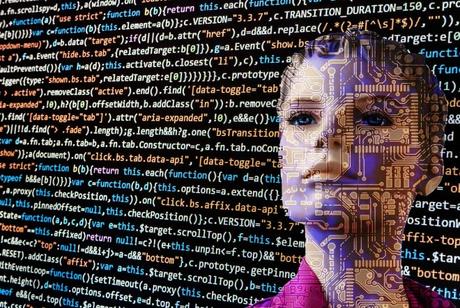
This summer, I had lunch with Doctor Mihretu Guta at Biola University. Mihretu specialises in the areas of metaphysics and the philosophy of mind. That particular day over lunch, he was speaking to us about his assessment of the field of artificial intelligence. And he has some fascinating observations to make here. You can listen to Mihretu talk about AI on Sean McDowell’s recent podcast.[1]
I would summarise his important points like this:
First – today we enjoy the benefits of weak AI.
We’ve got very useful computer based tools available to us today. Our phones incorporate facial recognition technology, self-driving cars are coming on line, we use SIRI to help us talk to and locate people, and we can order products from Amazon that get to us incredibly quickly. These are partly to do with computer tools, or weak AI.
What is weak AI? It is a machine which is fed an algorithm, a set of instructions that we gave it. It follows those instructions correctly, quickly and hopefully reliably!
By convention, we call these things AI. But these technologies are not thinking machines. They are not engaging in conscious thought. They are simply doing what we told them to do, and triggering on certain events to achieve certain tasks.
Second – strong AI is what some people are trying to get to.
In strong AI, people are talking about a conscious machine. Something that becomes creative and begins to spawn its own machines. But it is hard to see how you can get from a machine following an algorithm to a machine creating brand new algorithms out of its own creativity.
Third – we sometimes speak of weak AI like it is strong AI.
A confusion occurs in culture.
The AI we are talking about today is purely functional. It is doing tasks within a very specific context. It is not a thinking, creative machine that decides what it wants to do and works out its own way to do it. But – we begin to talk like it is. We import ideas from books and movies we like, and sometimes we fool ourselves that our cool gadgets are strong AI.
We may talk of strong AI, but there are issues to face when trying to create it:
1 – We are the thinking beings here, and we are the ones inventing machines. Thinking always requires a thinker to be somewhere. We therefore have ONTOLOGICIAL SUPERIORITY over machines. We are always the ones that built them.
2 – However clever our machines appear to be, they cannot take away from us our ontological superiority over them.
3 – Miharetu does not think people have a metaphysical property as rational beings to bring about a conscious being that is similar in kind to us.
4 – Miharetu is joined in this scepticism toward strong AI by John Searle, who is a naturalistic philosopher of mind. Searle also rejects the notion that we can invent a strong AI.
Fourth – an important step to strong AI is an understanding of consciousness.
We have to understand what consciousness is before we can create machines that are conscious. Yet no one is even thinking about this. He observes that the AI researchers today usually dismiss the subject of consciousness in 3 lines. They haven’t even tried to grapple with this area.
Part of the problem is that consciousness is something we have. It is deeply subjective and requires someone to be conscious. It is not something we can dissect from a third person perspective. Rather, it is something we experience. Thinking always requires a thinker.
Machines aren’t conscious. We cannot even articulate what our consciousness is, never mind imbue some machine with it.
Five – we are simply of a different order from our machines.
Whoever we are, we have the ability to navigate our way through life, following our own thoughts and ideas and intentions. We create opportunities and respond to events that occur from our own rational, creative and conscious selves. We have general intelligence. We live in our environment and we cope within it, we adjust. We establish a social network, we conduct our lives appropriately.
Machines are different order from us. They lack this general rationality. We give them rules to follow and they don’t think about it, they just do it. We are simply of a different order from them. We can build them to mimic human characteristics, but they are not thinking as they do so. They are simply following the instructions we programmed them with.
[1] Artificial Intelligence and Our View of Human Persons, Think Biblically Podcast, accessed 19th November 2019, https://podcasts.apple.com/au/podcast/artificial-intelligence-our-view-human-persons-mihretu/id1300837524?i=1000453915653.
